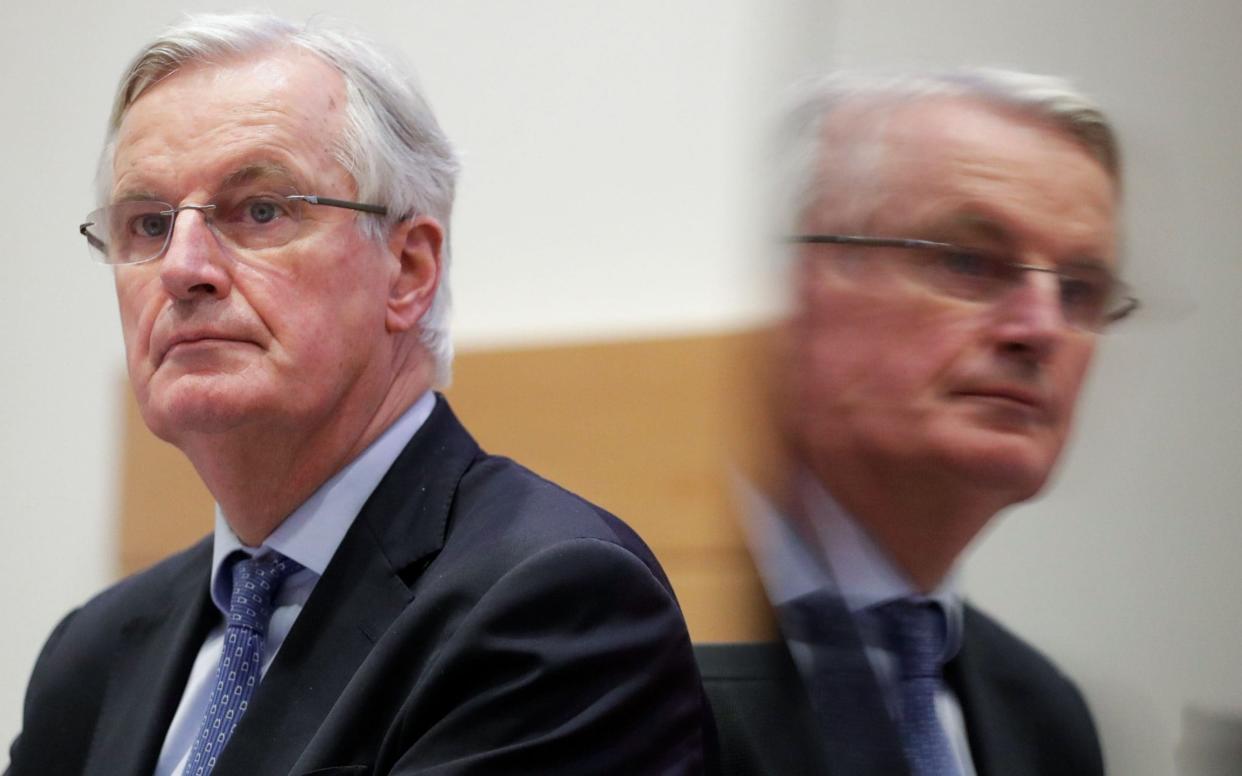Michel Barnier says 'au revoir' to Brussels - with a parting shot at Ursula von der Leyen

- Oops!Something went wrong.Please try again later.
- Oops!Something went wrong.Please try again later.
- Oops!Something went wrong.Please try again later.
So farewell then Michel Barnier, who has finally left the European Commission after about 15 years in the upper echelons of Brussels power-broking.
Had it not been for Brexit, the urbane Frenchman would be best remembered in Britain for his spell as Internal Market Commissioner, during which he introduced a raft of post-financial crisis regulation.
After two spells as a commissioner, it looked like Mr Barnier’s time in Brussels ended with his failed bid to become commission president in 2014.
But he was brought back as a senior advisor on defence by Jean-Claude Juncker, the man who beat him to the post.
In the wake of the 2016 referendum, Mr Barnier lobbied hard to become the chief Brexit negotiator and got a job that would consume his daily life for the next four and a half years.
The role made him that most rare of things; a European politician with pan-EU recognition.
In 2019, he may have nursed hopes that his profile would translate into a call from EU leaders to become the new commission president or perhaps the bloc’s chief diplomat.
That call never came with Angela Merkel and Emmanuel Macron opting to parachute in Ursula von der Leyen as a compromise candidate instead.
Mr Barnier, a staunch Gaullist, was not to Mr Macron’s political tastes. The French president could yet regret the move as Mr Barnier’s attentions have now turned to reviving the fortunes of Les Républicains ahead of presidential elections next year.
Mr Barnier’s regular tours of European capitals, were appreciated by EU governments, especially Ireland, which is the member state most directly affected by Brexit.
He appeared a comparative rock of stability as he saw off one British prime minister and welcomed no fewer than four British Brexit negotiators to Brussels.
Mr Barnier made no secret of the fact he viewed Brexit, which he termed a “school of patience”, as a lesson that had to be taught and learnt. This didacticism, to British ears, could often stray into pompous and repetitive lecturing on the supposed sanctity of the Single Market.
Avoiding no deal and keeping 27 member states broadly on board with the EU position for so long was a considerable achievement.
It was only with the arrival of Lord Frost that Mr Barnier appeared knocked off his stride. A few flashes of temper aside though, he maintained his composure under significant pressure.
Mr Barnier could be inflexible, which is a charge he finds particularly irritating. His supporters would paint this as a resolute defence of EU rules and interests, which proved justified when the UK caved late in areas such as fishing.
But his rigid refusal to hold negotiations in a swathe of sectors until there was progress on the three toughest areas did cost valuable time that could have been used to flesh out the final trade deal.
The final trade deal was closer to the British vision, even if it came at an economic cost to Britain, than Mr Barnier’s ambition of a more comprehensive agreement.
Lord Frost was simply not prepared to sacrifice UK sovereignty, even if it meant added trade friction, and Mr Barnier was not prepared to compromise on his interpretation of single market rules by allowing “cherry-picking”.

In his farewell speech in Zurich on Wednesday night, Mr Barnier listed the economic costs of Brexit but he also issued some veiled criticism of the European Commission.
It is an open secret in Brussels that Mr Barnier was not consulted in January when Ursula von der Leyen briefly threatened to impose a hard border on the island of Ireland to enforce a vaccine export ban against the UK.
Mr Barnier, who views the preservation of the invisible Irish border as his major success, was not impressed.
Judging by his comments on Wednesday, he continues to be dissatisfied with Mrs von der Leyen’s confrontational approach to the vaccines supplies dispute with Britain.
He even went so far as to praise Britain’s vaccination success, which has irked many in the upper echelons of the commission.
“There is no place, in such a serious situation, for polemics and competition. There are so many more reasons to cooperate, in the short and the long term," he said.
Mrs von der Leyen, a comparative rookie in the world of Brussels politics, would do well to listen to the veteran’s advice as UK-EU negotiations over vaccines continue this week.
This article is an extract from The Telegraph’s Beyond Brexit Bulletin newsletter. Sign up here to get exclusive insight from the UK’s leading commentators James Crisp, Christopher Hope, Dia Chakravarty and more - delivered direct to your inbox every Tuesday and Thursday.

